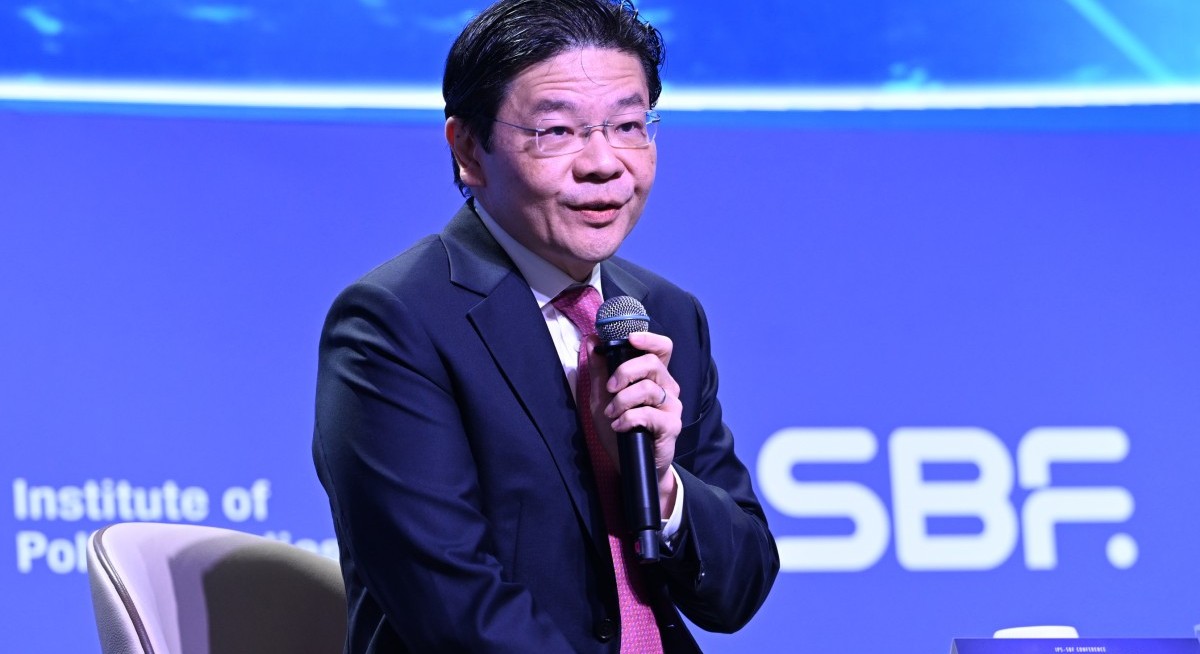“We [Singapore] have long been told that as a small country, we are a price-taker. Are we helpless?” questions Devan.
Wong, who also serves as Minister for Finance, says that the nation “has to be realistic” in accepting that “not much can be done”, Singapore cannot be a “passive bystander”.
Wong says: “We have [the] agency to shape our own destiny, and there are several things we can do. One; we can and we are working with like-minded countries to strengthen multilateral institutions today — this is not just talk.”
He points to the efforts in establishing a World Trade Organization (WTO) agreement for regulations to facilitate global electronic commerce as an example of international collaboration across nations.
See also: Temasek and GIC's returns 'reasonable' and 'within expectations'
According to the 21-member Asia-Pacific Economic Cooperation (APEC), whose secretariat is in Singapore, digital trade is defined through three terms.
They are: the trade in goods and services, such as goods sold over the internet and e-commerce platforms and digital content; the electronic facilitation of trade, such as the acceptance of electronic trade documents; and lastly, the transmission of data across borders, both as a direct business activity and to support other business activities.
On July 26, 2024, Australia, Japan and Singapore announced that 81 countries had consented to the joint-statement initiative's (JSI) draft. Among the 10 that did not sign on the draft was the US, which was "due to domestic consultations and considerations", as noted in a footnote.
See also: Heng Swee Keat steps down as director of MAS
Then-US ambassador to the WTO, María L Pagán, released a statement highlighing that the draft’s current text “falls short”, with “more work” needed.
“The dispute settlement system in the WTO is not working, and we have worked with other like-minded countries to come up with an interim arrangement,” says Wong.
Wong is also seeking to strengthen relations with countries that “may not have such close links” with Singapore, such as in Africa, Latin America and the Middle East.
He cites the Comprehensive and Progressive Agreement for Trans-Pacific Partnership (CPTPP) as a “promising initiative”.
Established on March 8, 2018, the CPTPP is a free trade agreement (FTA) signed between Australia, Brunei Darussalam, Canada, Chile, Japan, Malaysia, Mexico, New Zealand, Peru, Singapore and Vietnam. The UK joined the CPTPP in July 2023, taking the partnership's total member count to 12.
Notably, the CPTPP was borne out of the previously-proposed Trans-Pacific Partnership (TPP), which ultimately fell through following the US’s withdrawal on US President Donald Trump’s request in January 2017.
“We were amongst the first few countries to push and advance this [CPTPP] idea and it's gained a lot of traction, because the Europeans can see the trends, they like to work with like-minded partners to strengthen trades. Asian members of the CPTPP, like ourselves and others, are keen to advance the idea,” says Wong.
To stay ahead of Singapore and the region’s corporate and economic trends, click here for Latest Section
He adds that talks are “happening at the ministerial level”, with hopes that a partnership can be eventually “formalised”.
Among Wong’s most vital efforts is perhaps his focus on strengthening and advancing Asean integration.
“There is so much potential for us, so much more we can do to bring Asean closer together, to bring down barriers," he says.
Although tariffs between Asean member economies are “practically zero”, Wong says that a single market would make operations “seamless” across Southeast Asia. Should all the “unnecessary distractions” such as border issues be removed, he adds, progress can be made through working on “concrete initiatives” to “bring Asean together”.
He says: “Asean per capita gross domestic product (GDP) today is $6,000 — that’s a very low average. If Asean per capita GDP gets to something like $10,000 or more, it will be a complete game-changer for the region. We have a region that's young and potentially a rising middle class.”
‘Staying open’ is ‘not a matter of luxury’
“Some say we are boring, and yes, we are,” says Wong in response to a question posed by Devan on Singapore’s position as a key hub in the present global context.
He adds: “We can try to be more exciting, with more lifestyle offerings — but let's be realistic, we will not be the same. But at the same time, we are stable, we are predictable, we are reliable and we are trusted, and these are intangible assets that others will die to have.”
Although Wong stands firm that “staying open” is “not a matter of luxury” for Singapore but “an essential lifeline”, he notes that “house rules” must be set and Singapore “must always be a home” for Singaporeans.
“For example, [this includes] guardrails on housing. Foreigners who want to buy a home or property here, pay the additional buyer’s stamp duty (ABSD). There will [also] be prudent controls on foreign manpower. It's not just a free for all,” says Wong.
He concludes: “We manage the flows so that Singaporeans always remain at the centre of everything we do. Singaporeans benefit and gain [from] a global city, which will eventually translate into better homes, better lives and improved standards of living.”




